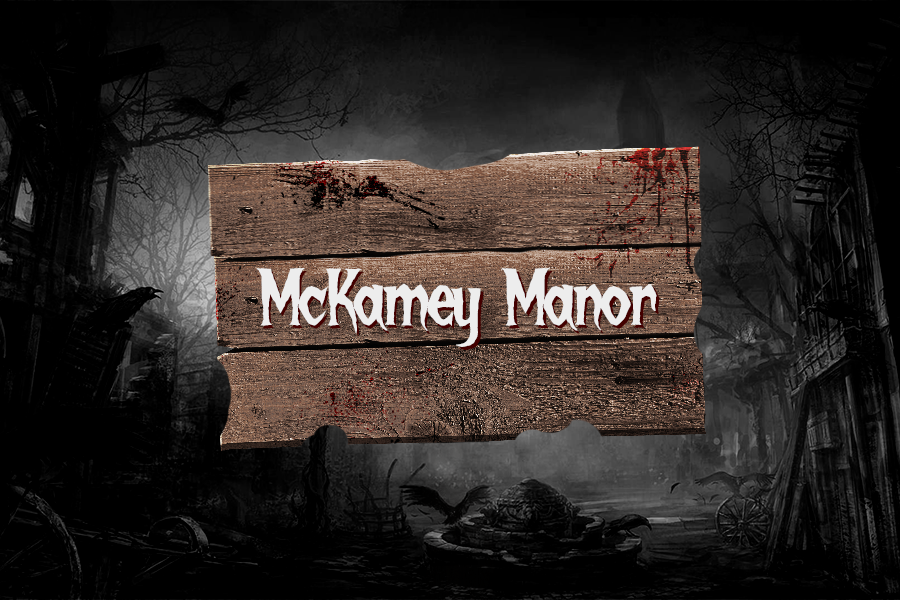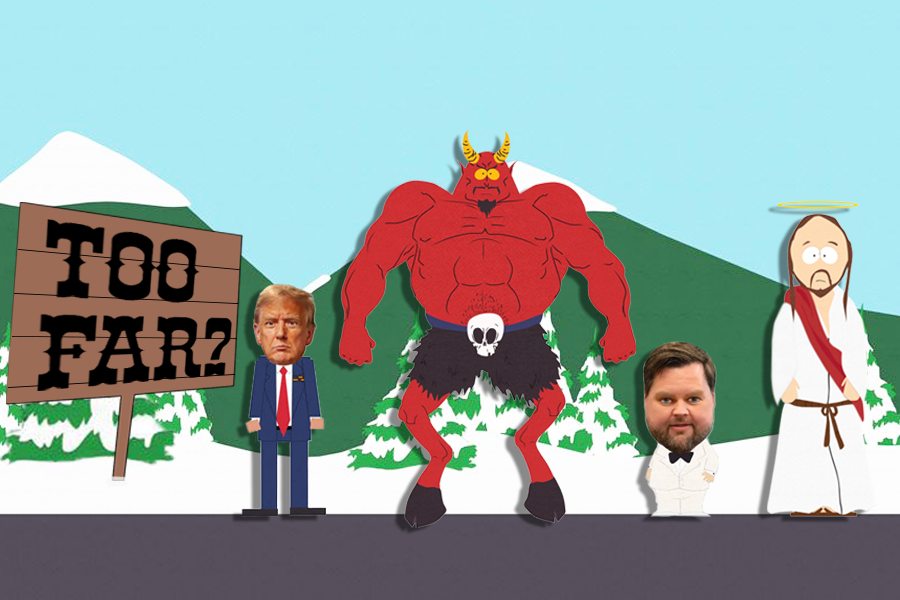Frights and scares are in the air as Halloween kicks sets the mood during the autumn season. Not only does this mean trick-or-treating and watching spooky movies, but also visiting haunted houses, a staple activity during this chilling holiday. When hearing the words “haunted house,” most people think of walking through an attraction where dressed-up ghouls pop out to scare them, but some hardcore fans like to go to more hands-on sights. These houses of horror often include the staff members physically contacting guests, and in extreme cases, inflicting pain on them. Of course, all of this is done after the consumer signs a waiver and the workers agree to a safe word in case attendees want to end the experience. However, there’s a famed “torture house” that doesn’t respect any of this: McKamey Manor.
McKamey Manor, founded by Russ McKamey, or as he calls himself, “the torture king,” is a year-round experience in which participants go through a series of tormenting and painful “punishments” inflicted by the workers, all while being filmed and talked through the attraction by McKamey. The two attractions McKamey has for his “haunted house” are located in Summertown, Tennessee, where McKamey films the contenders, but there is another in Huntsville, Alabama that he doesn’t make an appearance or record in. Due to the intense and harmful nature, this leaves a lot of people wondering what the point of the manor is and why someone would ever do this. They lure people in with an incentive of $20,000, so long as the participant remains in the manor for 10 hours, which, for that amount of money, seems doable for some people. But, if you aren’t already repulsed from this “opportunity of a lifetime,” maybe a few points from the 140-clause waiver might make you respect this “haunted house” a little less.
Clause 129 – “Participant will be given a safe phrase. If Participant uses this safe phrase the Tour will stop slowly come to a stop but harassment, shoving, etc. will continue until Participant completes their walk of shame.”
If you think I put grammar mistakes into that quote, you’d be wrong. That is a word-for-word copy of what the waiver says, which already badly starts this off. But, it also breaks the rule that nearly every intense haunted house abides by: a safe word. In McKamey’s waiver, it states they will “slowly stop the experience,” when, if the safe word is used, the attraction should be halted immediately. Especially in cases of life-or-death and boundary-pushing situations that the McKamey Manor often has. The “walk of shame” also refers to the punishment the participant has to go through after “losing” McKamey Manor, or deciding they no longer want to go through the torturous house. In this case, the “failure” has to silently walk a one-mile hike with a piece of paper attached to their clothing, intended to humiliate them, often calling them various profanities and insults. Again, this doesn’t count as “ending the experience;” McKamey is just using the “walk of shame” as a way to try to torture the participants and feed into his own lustful desires, even after they’ve already committed to being done with the “haunted house.” This is highly looked down upon by other haunted houses and companies because it makes people think all haunted houses will go too far, when contractually obligated companies will stop immediately when the individual says the safe word.
Clauses 20, 22 and 23 – “Participant agrees and understands that your life in reality is not in danger and this is just a game.”, “Participant understands and agrees that they realize that they are not being tortured and this is just a game.”, “Participant understands and agrees that they are not being beat up, kicked, slugged, or actually physically harmed. You will be roughed up but no one is there to hurt you. Knowing that, McKamey Manor (MM) is very rough and not for the meek. Participant will have bumps, bruises, possible black eyes, swelling of the face, etc.”
Coming from the man proclaiming to be the “torture king,” this seems very unlikely. All of these clauses are immediately followed by over 100 ways they might use to harm the individual in this attraction, including contact with poisonous animals (Clause 33), waterboarding (Clause 65), being beaten with tools (Clause 67), hundreds of pounds of chains crushing them (Clause 107), being put in a car trunk with limited air (Clause 116) and many more. So to say that all of those aren’t considered torture or harmful for the recipient is hypocritical and shouldn’t be included in the waiver. The contradiction between these clauses, which are right beside each other in the waiver, is just McKamey’s way of making sure he wouldn’t get into any legal trouble, not to make a quality document. Even though McKamey stated that it wasn’t for the faint of heart, saying that participants will only get “roughed up” is severely downplaying how intense and dangerous the experience is, just for him to list 100 life-threatening clauses right after. Not to mention the fact that he said they wouldn’t be harmed, then said they might leave with bruises, swelling, bumps, or black eyes, which is still considered harm. The effort, or lack thereof, in the waiver puts a bad stain on the scaring and haunting industry, so labeling this experience as a “haunted house” just like any other, takes away from the haunted houses that actually make sure they have a contradiction-free setup.
Clause 101 – “Participant fully understands and agrees that Russ McKamey and the staff of MM run a very clean and positive show. No sexual or religious situations and even that of cussing from the Participant is not allowed inside MM.”
But in reference to the main part of that clause, it’s very ironic, since McKamey can’t seem to follow his own rules. As of Sept. 25, 2024, McKamey faced charges of second-degree murder, domestic assault, rape, and faces reports of sexual assault and actively hires sexual offenders. Although these legal charges were dropped, the fact that he was charged in the first place makes the “business” he runs seem like an excuse to play into his fantasies. Along with this, McKamey filming the participants to feed into his sexual tendencies could lead many people to speculate that other owners have kinks to harm or control someone, just because of the few cases like McKamey’s, where there just so happens to have a lot of confirmation from participants to support that claim. This just waters down the industry as being something catering to the creator’s perversions, which is rarely ever the case.
If you’re a thrill-seeker or Halloween enthusiast, I urge you to search for another haunted house instead of trying to look into this excuse for one. There are plenty of other extreme haunted houses that will respect participants’ boundaries, like 17 Doors, Haunted Hoochie, The Dent Schoolhouse and The Blackout Experience. I understand that the participants who sign up often know very well what they’re getting into, but that doesn’t disregard the fact that McKamey shows no respect for their safety or livelihood. Along with this, if this article struck you and you feel something needs to be done about McKamey Manor, you can go to https://www.change.org/p/tennessee-state-senate-shut-down-mckamey-manor or other advocate websites to get the Tennessee and Alabama legislatures to get rid of McKamey’s disgraceful “haunting” experience.










